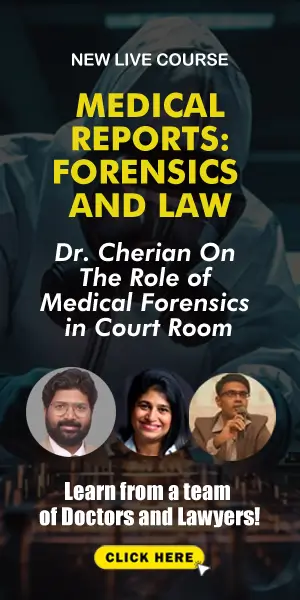Mother Entitled To Maternity Leave Of 26 Weeks For Third Child: Having Surviving Children Means Having Custody Of Children: Madras HC
- In a significant judgement titled K. Umadevi vs Government of Tamil Nadu and ors. the Hon’ble Madras HC has held that a woman is entitled to a maternity leave of 26 weeks if she does not have custody of her other two children. The Court further went on to say that having surviving children means to have the custody of the surviving children.
- The Court also observed that there is no ceiling limit to the number of children towards entitlement of maternity leave. A woman employee who has less than two surviving children is entitled to the maximum period of benefit, which is 26 weeks. However, a woman employee who has two or more surviving children is only entitled to a benefit of 12 weeks.
- The facts of this case are that the Court was trying to adjudicate upon the restrictions that had been imposed by the application of rule 101(a) of the Fundamental Rules governing the Tamil Nadu Government Servants. On the basis of this rule, the Chief Educational Officer rejected the maternity leave request of a Government School Teacher. She had two children out of her first marriage and they were in the custody of the first husband. She had not taken any maternity leave for her first two children as she became a government employee after they were born.
- The maternity leave that she now sought was for her third child, who she was expecting out of her second marriage, which was contracted in 2017.
- The Court observed that the Maternity Benefits Act is in furtherance of the Directive Principles Of State Policy and that any executive order or circular which is repugnant to the central enactment has to be read down to give a constitutional thrust. The Court also observed that as long as the Central enactment has not provided any restrictions on the number of children for the purpose of availing maternity benefits, no other rule or regulation can put any fetters on such a claim.
- The Court referred to the case of Ruksana vs State of Haryana (2011) wherein it was held that Maternity Benefit Act would override any service rules. Reference was also made to the case of N. Mohammad Mohideen and anr. Vs. Deputy Commissioner Of Labour (Inspection) Chennai (2008) wherein it was held that a combined reading of Article 42 and the provisions of the Maternity Benefit Act makes it clear that any woman covered by the Act is entitled to claim maternity leave irrespective of the number of deliveries made by her.
- The Court has also clarified that the words “having surviving children” have to be harmoniously construed with the object of the Maternity Benefits Act to mean that the woman claiming the leave must have the custody of those children, both literally and factually.
- The Court relied upon the case of J. Sharmila vs Secretary to Government, Education Department (2010) SCC wherein it was held that section 27 of the Act clearly mentions that the Act would have an overriding effect on any law or agreements which are inconsistent with the Act, either before or after the Act came into force.
- Thus, the petitioner was entitled to the full benefit under the Maternity Benefits Act.
PMLA: Jail Is A Rule And Bail Is An Exception: Allahabad HC
- In the recent case of Anirudh Kamal Shukla vs Union of India through Assistant Director, ED the Allahabad HC has held that for money launderers, jail is a rule and bail is an exception. The Court stressed on the fact that money laundering is an economic threat to the national interest and is committed by white collar criminals who cannot be so easily traced.
- In the instant case, an anticipatory bail application was moved by Anirudh Shukla who had been booked under section 3 read with section 4 of the Prevention of Money Laundering Act, 2002.
- The allegations that were made against him were that he along with his brother had conspired with one R.K. Mishra and Vinny Sodhi for sanction of an overdraft limit for Rs. 24.6 lakhs for business purpose against the mortgage of property of Ram Nath Sharma and applied jointly along with the name of his brother Ashwani Kamal Shukla by submitting fake ITRs, PAN Card, NEC, Valuation report with respect of the property mortgaged, mutation certificate, will and sale deed.
- The investigation had also revealed that Rs.25,000 was transferred to the current account of the applicant on 6-11-2006 which was utilised in the business, which was admitted as tainted by the applicant.
- The Counsel for the ED had relied heavily upon the decision of the Apex Court in the case of Assistant Director vs. VC Mohan (2021) wherein it was held that the rigours of section 45 of PMLA would necessarily be attracted in case of petitioners who file applications for the grant of anticipatory bail.
- The Court referred to the case of Pankaj Grover vs Union of India (2021) where the Allahabad HC had observed that in socio-economic offences, the proceeds of crime are larger, and the offenders are c=economically sound, thus, if they are released on bail/anticipatory bail, their chances of absconding, not just within India but outside India are very high. Further, it was observed that their status and position provides them an opportunity to influence investigation and prosecution.
- The Court also observed that section 45 of PMLA provides twin conditions which are mandatory in nature, and must be complied with before releasing an accused on bail. The same had been reiterated in the case of Gautum Kundu vs Directorate of Enforcement (2015) SCC where the Apex Court had observed that the twin conditions mentioned in section 45,( i.e., that the prosecutor must be given an opportunity to oppose the application; and that the Court must be satisfied that there are reasonable grounds for believing that the accused person is not guilty of such an offence and that he is not likely to commit any offence while on bail), have an overriding effect on the provisions of CrPC, in case of a conflict between the two.
- The Court also relied upon the decision of the Apex Court in P. Chidambaram vs Directorate of Enforcement (2019) SCC where the SC had held that the privilege of pre-arrest bail can be granted only under exceptional circumstances.
- In light of the aforesaid observations, the Court observed that the arguments advanced by the Counsel for the applicant can be agitated at the stage of regular bail but not in the cases of anticipatory bail.
- Thus, the application for anticipatory bail was dismissed.
Allopathic, Dental, Ayurvedic And Homeopathic Medical Officers To Have Uniform Pay Scale Under National Rural Health Mission Scheme: Supreme Court
- The Honourable Supreme Court in the case of State of Uttarakhand & Ors. V. Sanjay Singh Chauhan & Ors. [Petition for Special Leave to Appeal No .33645/2018] has dismissed the petition challenging the order passed by High Court of Uttarakhand in a writ petition, wherein the State (here petitioner) was directed to release and pay the salaries to the petitioners (here respondents) at par with Allopathic and Dental Medical Officers, within a period of three months from date of such order, along with arrears.
- The petitioners were appointed in Rashtriya Bal Swasthya Karyakram (RBSK) running under National Rural Health Mission. The State Government had also employed Ayurvedic, Homeopathic, Dental and Allopathic Medical Officers under the scheme on contract basis.
- The Allopathic and Dental Doctors were given consolidated pay of Rs.48,000/- for Sugam, Rs.52,000/- for Durgam and Rs.56,000/- for Ati-durgam places. The petitioners were paid only Rs.36,000/- for Sugam, Rs.40,000/- for Durgam and Rs.44,000/- for Ati-durgam places.
- It was submitted that there was no intelligible differentia to distinguish the Ayurvedic and Homeopathic Medical Officers as against Allopathic and Dental Medical Officers. There was no rationale as to why the similarly situated persons were being discriminated against. The petitioners as well as Allopathic and Dental Medical Officers constituted a homogenous class. The petitioners obtained their degrees from recognized institutions. Their nature of degrees and duration of courses were almost the same.
- It was the contention of the State Government that the case of the petitioners had to be rejected on the ground that they were working on contractual basis.
- The Learned Judge of the High Court relied on the case of Bhagwan Dass & ors Vs. State of Haryana & ors, where the Apex court had held that if duties and functions of temporary appointees and employees of regular cadre in a particular government department were similar, there could not be any discrimination in payment made to them merely on ground of difference in mode of their selection or that the appointment or scheme under which appointments made was temporary.
- The High Court was of the view that the duties discharged by the petitioners, Allopathic and Dental Medical Officers were of equal sensitivity and quality. Even the responsibility and reliability were the same. The classification done by the Government was held as irrational. Hence, the impugned order was passed.
- Honourable Supreme Court while dismissing the petition, wherein such order was challenged, held that order passed by the High Court was tenable.
"Loved reading this piece by Shweta?
Join LAWyersClubIndia's network for daily News Updates, Judgment Summaries, Articles, Forum Threads, Online Law Courses, and MUCH MORE!!"
Join LAWyersClubIndia's network for daily News Updates, Judgment Summaries, Articles, Forum Threads, Online Law Courses, and MUCH MORE!!"













